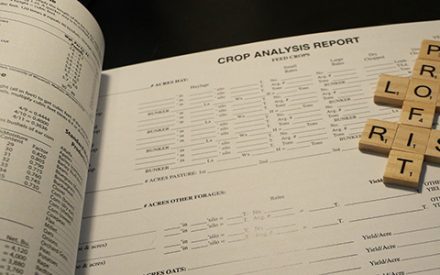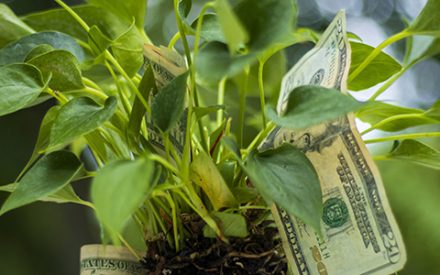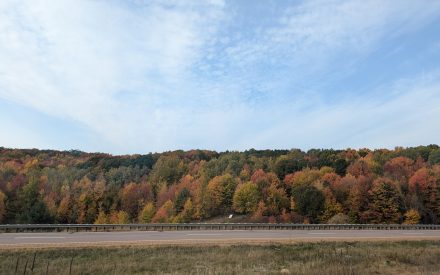Video Summary
Lindsey Rushford, nitrogen optimization program outreach specialist with UW–Madison Extension, provides updates on the Nitrogen Optimization Pilot Program (NOPP) for 2025.
Learn how this statewide initiative supports on-farm nitrogen rate trials, promotes farmer-led research, and contributes to improved nitrogen use efficiency and water quality. Lindsey outlines current and upcoming projects, new funding opportunities for first-time participants, and how to get involved in the next grant cycle. Discover how NOPP is helping Wisconsin farmers fine-tune nitrogen management for both economic and environmental benefits.
Resources
- Nitrogen Optimization Pilot Program – Grantee Support and Project Spotlights (UW site)
- Nitrogen Optimization Pilot Program – Program Information (DATCP site)
- Find your Regional Crops Educator
Transcript
0:05
OK.
0:05
Thank you, Kevin.
0:07
So as Kevin mentioned, I’m Lindsey Rushford.
0:11
I’m the Nitrogen Optimization Program Outreach Specialist with UW Madison Division of Extension.
0:17
I’m just going to provide some background on the program that’s funding the on Farm research project that you’ll hear about today and offer some opportunities to learn more about NOPP projects at field days coming up and get involved in NOPP yourself.
0:31
OK, so NOPP is a grant program that offers grants to agricultural producers to conduct 2 year on farm nitrogen rate studies to enhance the understanding of commercial nitrogen fertilizer use.
0:47
This funding can cover anything from the time spent taking samples and the cost of analysis to covering the cost of inputs for the trial area itself or supplies to host a field day or meeting related to the NOPP project.
1:01
It can even go towards tools such as soil sampling probes, weigh wagons and other equipment that can make on farm research more accessible to folks.
1:12
So far, $3.6 million worth of projects have been funded that support on farm farmer driven research questions that also have a statewide benefit.
1:25
And we found that a well planned research project can only get us so far.
1:29
The value of partners and collaborators is more important, more apparent with each cycle that we go into.
1:35
So highlighting all those project partners that are in the field or helping with grant administration and everything in between are really valuable to these projects.
1:47
So folks can apply for projects that really resonate with them depending on their farm goals, management and environment.
1:54
So their research questions can fine tune nitrogen management on their farms to meet their economic, agronomic and conservation goals.
2:03
From their participants are sharing with other farmers in the area.
2:06
And their projects will contribute to regionalized resources for others to consume and learn from.
2:14
And the data generated from each trial will feed back into a database that can support statewide nitrogen recommendations that are being reviewed right now.
2:26
So why is the state of Wisconsin interested in supporting more on farm nitrogen research?
2:31
On the one hand, nitrogen can be a limiting nutrient in agricultural systems, but there are also environmental and agronomic or economic costs when we aren’t optimizing our commercial nitrogen fertilizer use.
2:41
Mis-applying nitrogen holds a risk of nitrate leaching and polluting groundwater and reducing farm profitability.
2:56
However, nitrogen cycling is also very complicated.
2:59
This is not a simple topic, so we won’t go through the nitrogen cycle, but we do need to recognize that there are number, number of inputs, outputs, losses and transformations involved with the nitrogen cycle.
3:13
And understanding these pieces of the N-cycle can impact water quality and profitability as it relates to nitrogen fertilizer use.
3:23
To make things even more complicated, this cycle looks different from one farm to the next and one season to the next.
3:31
So everything from soil types and weather we just heard about is very variable even across our state to crop rotations and the presence of livestock and manure, which we’ll get more into today can impact how the nitrogen cycle looks on each farm and one from one season to the next.
3:52
So this map is showing all of the NOPP sites so far.
3:56
So we’re in our third season of funded trials.
4:00
The completed projects are in purple and the current projects are in yellow.
4:05
Many of these sites are nitrogen rate only studies, but others were designed to investigate the impact of a management practice on rates.
4:15
So some of these projects that you’re seeing on the map are investigating manure, which again we’re going to talk about one of those projects in depth today.
4:24
Some projects are looking at nitrogen application timing or frequency.
4:28
You know, what does it cover crop or termination timing do to my the following crop’s nitrogen management or the use of products or technology.
4:41
So if you’re interested in learning more about specific projects around the state.
4:45
So the southeastern side of the state is really hitting it hard in September with field days.
4:50
There’s a couple of these opportunities coming up.
4:53
You can find a date and location that works for you.
4:55
A lot of these these field days are not just covering nopp.
4:59
So they have several topics that they’re going to cover at these.
5:03
Some Flyers or links should be put in the chat.
5:06
The last one on there, Nitrogen Management Field Day is on September 30th and they don’t have all the details put together yet, but you can follow the link that will lead to the crops and soils calendar and all those details will be populated there soon.
5:20
So keep an eye out.
5:24
So we’re excited that the state has decided to fund NOPP for another two years.
5:31
And so I’m going to share a little bit about that.
5:34
We have the existing format that that folks are used to by now.
5:40
So this will continue to fund.
5:44
The majority of funding will go towards this existing format that will support nitrogen rate trials either with or without an additional management practice.
5:53
But we do have two new opportunities that a pretty small amount of the funding will go to, but we wanted to offer opportunities that are lower barrier of entry to on-farm nitrogen assessments or research.
6:08
So one new option this year is a nitrogen use efficiency assessment and this is an opportunity to assess the efficiency of your current nitrogen management on a particular field utilizing a 0 N strip, NUE metrics and nitrogen budgeting.
6:26
And the second efficient, the, the second option that’s new this year is a nitrogen management comparison trial.
6:34
So these are smaller but still replicated trials that investigate other management practices including but not limited to nitrogen application timing or method, source, and additives.
6:48
So these new options are open only to first time NOPP participants.
6:53
So if you haven’t received an NOPP grant before, these options are open to you.
6:57
But each of these three options will provide valuable and unique nitrogen management insights to farmers and their partners.
7:06
So there’s not one that’s any better than the rest.
7:11
So here’s a high level timeline for the upcoming grant cycle with completed applications that are due in January.
7:18
If you’re interested in learning more about the upcoming application cycle, I’ll encourage you to scan this QR code or click the link that should be or will be in the chat soon.
7:29
This will lead to that DATCP’s NOPP web page where you can not only find the most up to date information, but you can also opt in to text or e-mail notifications.
7:39
So you’ll be the first to know when the RFP and application are available, and those are set to be released in October.
7:48
That’s all I have for you.
7:49
I just kind of want to set up where the funding is coming from for the project that you’re going to hear about.
7:54
You can reach out to myself or my colleagues, Monica and Susan, also working closely on the program, if you have any questions and I’ll stick around.
8:03
If anyone has questions, you can throw them in the chat.
8:06
Thanks.
Badger Crop Connect
Timely Crop Updates for Wisconsin
Second and fourth Thursdays 12:30 – 1:30 p.m.
Live via Zoom


 ▶ Fall 2025 Financial Assistance for Producers
▶ Fall 2025 Financial Assistance for Producers ▶ Fall 2025 Ag Policy Update
▶ Fall 2025 Ag Policy Update ▶ Fall 2025 Corn and Soybean Market Outlook
▶ Fall 2025 Corn and Soybean Market Outlook ▶ November 6 Ag Weather Outlook for Wisconsin
▶ November 6 Ag Weather Outlook for Wisconsin